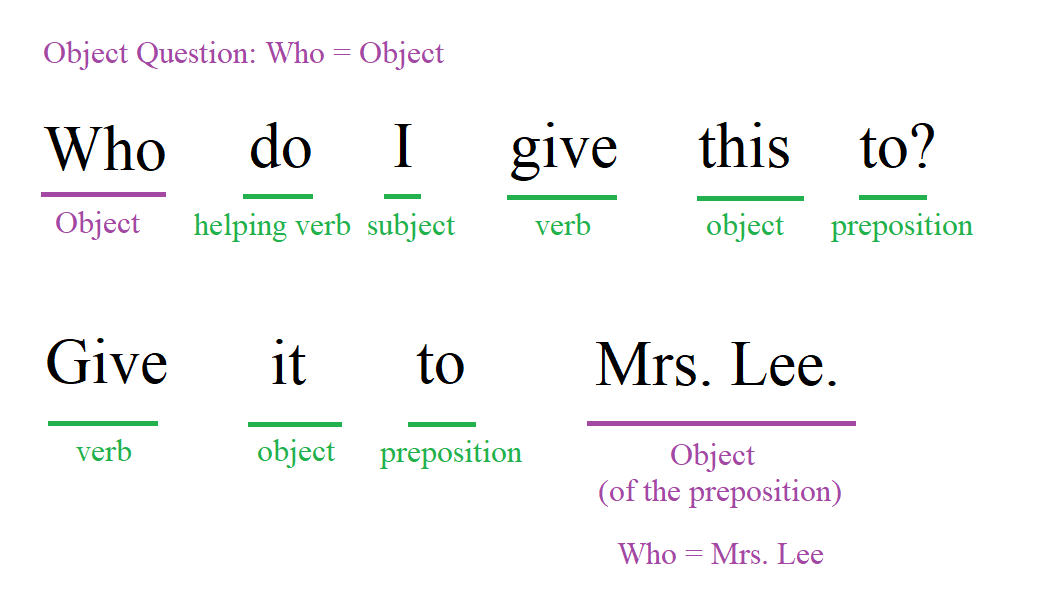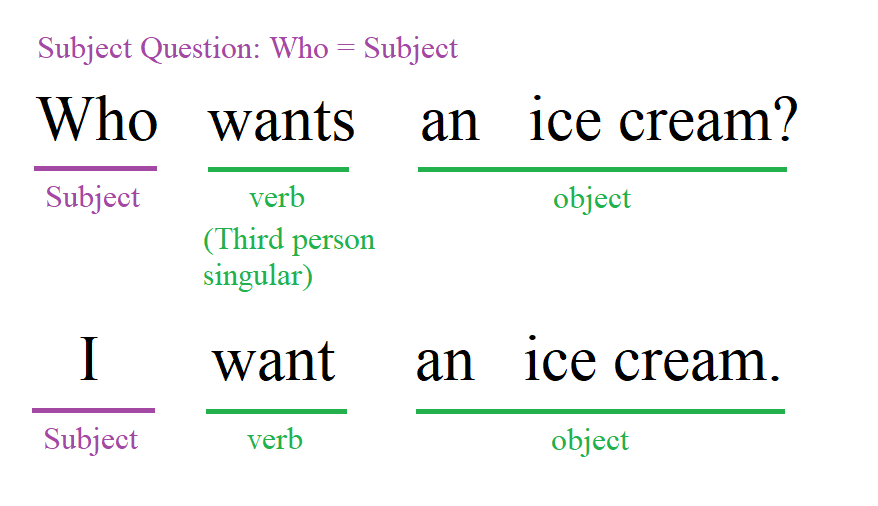Who Questions
- 'Who' can be used in both object and subject questions in the simple present tense.
- The structure of a 'who' object question is: Who + do/does + verb + (preposition).
- The structure of a 'who' subject question is: Who + verb + (object).
- The answer to an object question is an object.
- The answer to a subject question can be a subject of the sentence.
We will learn how to form and answer 'who' questions in the simple present tense. This topic covers both object questions and subject questions.
"Who" in Object Questions
'Who' is often used as an object in questions. This is when the answer to the question is an object.
The structure is: Who + do/does + subject + verb + (preposition)?

Examples:
-
Who do you like?
Question word ("Who") + helping verb ("do") + subject ("you") + verb ("like")?
-
I like Amy.
The answer ("Amy") is the object.
-
Who does your brother play with?
Question word ("Who") + helping verb ("does") + subject ("your brother") + verb ("play") + preposition ("with")?
-
My brother plays with my sister.
The answer ("my sister") is the object of the preposition ("with").
'Who' in Subject Questions
Sometimes 'Who' can also be used as a subject in questions. This is when the answer can be the subject of the sentence.
The structure is: Who + verb + (object)?

Examples:
-
Who loves pizza?
Question word ("Who") + verb ("loves") + object ("pizza")?
-
I love pizza.
The answer ("I") is the subject of the sentence.
-
Who writes the best poems?
Question word ("Who") + verb ("writes") + object ("the best poems")?
-
My mom writes the best poems.
The answer ("My mom") is the subject of the sentence.
-
Who is this person?
Question word ("Who") + be verb ("is") + complement ("this person")?
-
This is John.
The answer ("John") is the subject complement.
Pratiquez ce sujet avec le AI English Tutor
AI English Tutor vous apprendra la grammaire et la pratiquera avec vous sous forme de conversation. De plus, plus de 100 questions pratiques sur ce sujet pour consolider votre compréhension.
Essayez ALULA gratuitement sur votre téléphone ou votre tablette








Avez-vous des questions sur cette leçon ? Posez-les dans la section des commentaires, ci-dessous.